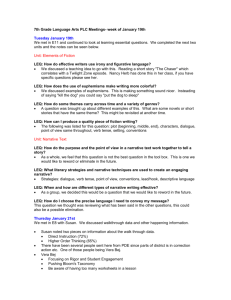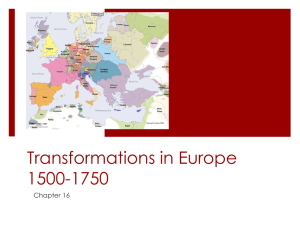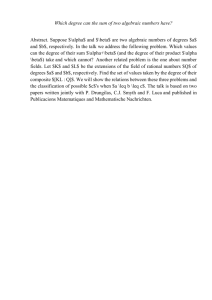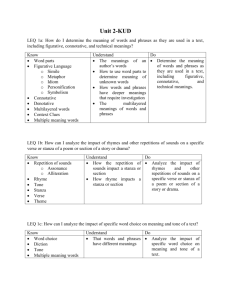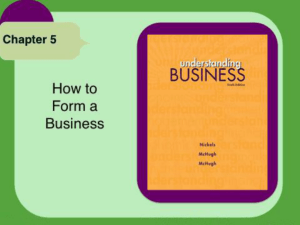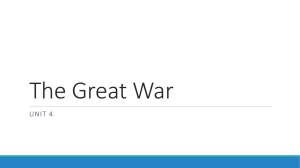Course Plans
advertisement
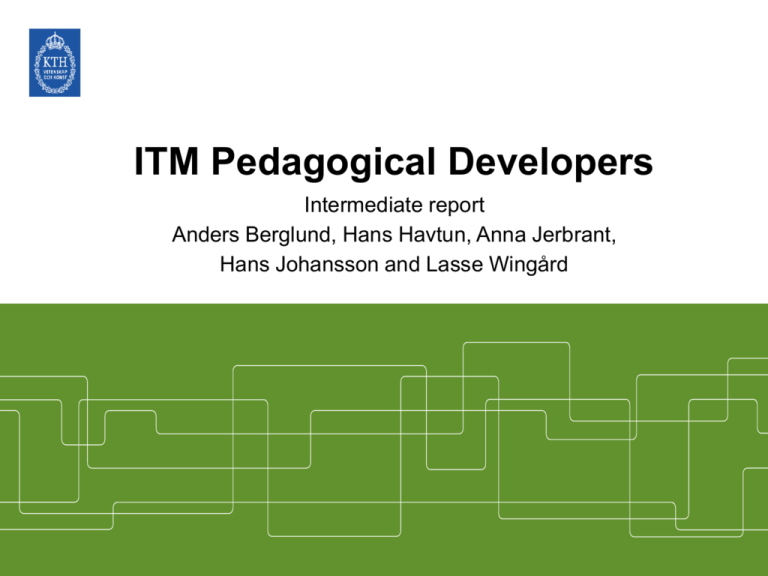
ITM Pedagogical Developers Intermediate report Anders Berglund, Hans Havtun, Anna Jerbrant, Hans Johansson and Lasse Wingård Agenda • Intro about ”ITM PD” • ITM PD’s - Objectives - Activities • Course Plans • Formative Feedback • LEQ Huvuduppdrag • ”Huvuduppdraget för de pedagogiska utvecklarna är att stimulera och underlätta för skolans lärare, lärarlag och program att bedriva och implementera pedagogiskt utvecklingsarbete. • ECE-skolan får uppdraget att utveckla konceptet med pedagogiska utvecklare.” • As far as we know, no English translation is available. Rektors beslut UF-2013/0361 Organisation Organisation Ledning Program Studenter Lärare HP PU ITM – PD – Aims (1) • Improve evaluation procedures for courses and programs at ITM School • Review, and if need be, revise course plans • And, from a program perspective: - Develop examination and teaching methods to decrease teacher work load at the same time as the learning of the students increase - Increase the use of continuous examination and formative feedback. ITM – PD – Aims (2) Create course development teams that: - meet regularly to discuss pedagogical issues and performing pedagogical - strengthening team members through feedback and experience exchange ITM-PD – Activities (1) • Quality Ensurance of Course Course Plans • Develop Examination and Teaching Methods • Clarify the Program Perspective and Program Goals for Teachers and Students • Highlight the Non-technical Skills (e.g. written and oral communication) ITM-PD – Activities (2) • Form course development teams (department) • Form course development teams (school) where topics of interest can be discussed, e.g. Elearning, Teaching of large courses, Project based courses • Implement LEQ as a course evaluation tool • Initiate ITM K50 and L50 ITM K50 and ITM L50 • We will identify the courses and teachers at each department that are strategically important for the programs of the school. We aim to find 50 courses and teachers. • Initially we will map the teachers that are already cooperating and where they are working. The aim is to encourage these teachers to work across the school to promote experience exchange to the school’s faculty Course Plans – What is said in the Higher Education Ordinance (Högskoleförordningen)? First and second-cycle courses and study programmes Courses and study programmes - Section 13 All first and second-cycle study programmes shall be offered in the form of courses. Courses may be combined to create study programmes. Ordinance (2006:1053). Course syllabus (Course plan with KTH terminology) - Section 14 A course shall have a course syllabus. Ordinance (2006:1053). Section 15 The course syllabus shall indicate the following: the cycle in which the course is given, the number of credits, objectives, specific entry requirements, how student performance is assessed and any other regulations required. Ordinance (2010:1064). Course plans – What is stated by KTH? Ur presentation om rättssäker examination av Carina Kjörling All courses must have a course plan – specify rules – shall be written in Swedish and translated into English after approval The rules are similar to laws decided by the parliament and regulations decided by the government 1. compulsory and general 2. must be adhered to by university staff as well as by students Exceptions from the rules for examination procedure specified in the course plan are not allowed There is a need for non-compulsory rules – should be entitled: general advice, guidelines, recommendations etc Compulsory rules shall not be given in course PM or similar documents (however, detailed grading criteria can be specified in a course PM) Course Plans – The Current State at ITM? • Are available for almost(!) all courses at ITM (422 distinct courses VT14+HT15, of which 63 are Degree Project courses) • English language version of course plans are missing for some further courses • The amount of text and its quality varies significantly, both for Swedish and for English language versions • Many teachers do not know how the course plan should be used, what the different sections should contain and where the information in the course plan is published • There are procedures established for review and approval of new course plans, but it is chiefly an administrative review of formalities. The relevance of and need for a new course is currently not reviewed (but a new form has just been presented for this purpose) Lasse’s Pedagogical Projects: • Presentation/workshop on course plans at the program council (programkollegium) of the Material Design and Engineering Program • Plan another workshop on course plans for teachers at the Södertälje unit (TMT) • Is currently reviewing all first-cycle course plans • Aiming at finishing review and update of all ITM course plans before the start of 2015/16 academic year • Will write guidelines for course plan design • So far an ITM initiative, but common guidelines for all of KTH are needed ”Formative feedback” What? Why? How? Formative feedback concerns transmission of learnings to students and teachers to modify and improve student engagement and their learning A core activity and an integral part of enabling effective teaching and trigger a student-to-student learning format. To improve student comprehension, learning needs, and academic progress during a lesson, unit, or course. To develop a higher level of achievement in cognitive and skill outcomes, formative feedback should have a range of qualities: - Timely - Motivational - Individual/personal - Manageable - Rooted in learning objectives Anders’ Pedagogical Projects: Activities: – Invited speaker at ECE on formative feedback in June 2014 – Formative feedback workshop in Aug 2014 – Initiated locally a PD group on Formative feedback that aims to map different practices with different formats of feedback – Start of test-implementation of LEQ – Invitation to workshop on Formative feedback in January Anna’s Pedagogical Projects: • Continuous examination in large courses (>150 students, tried two different designs in one basic and one advanced course) • Design of alternative examination in large courses (>150 students, tried it in one basic course) • Design of formative feed-back through for instance peer-review (tried two different designs in one basic and one advanced course) • To-do coming period LEQ test in 5 different Indek courses and design of a ProSam course for CINEK year 1-3 (with a focus on non-technical skills and JML knowledge) Course Evaluation for Course Development Introduction How can you as a teacher make the students in your course learn more/faster/deeper? Are you tired of reading the same comments about your course year after year in course evaluations? You can improve your course! We are here to assist you… Introducing LEQ LEQ – Learning Experience Questionnaire • The LEQ explores factors in the students’ learning environment which, according to evidence based research, is beneficial for students’ learning • Focus is shifted to the students’ perception of the learning environment and steered away from evaluating teaching activities and/or teachers • The teacher can identify strengths and develop-ment areas in his/her learning environment. • Analysis and development is done together with other teachers – experience is shared! • The quality of the course is determined by the students’ performance in examination LEQ V 3.0.2 • The questionnaire consists of 22 statements and 4 open questions (+ 3 questions for student data) • The students state to what degree they disagree/agree to the statements on a scale from -3 to +3 (where 0 is neutral) • Based on the results (mean values), a footprint of the course can be done to visualize the students’ view of the learning environment • The LEQ is still under development Process 1 (2) • Teachers are invited to participate in a course development group where LEQ is used as a basis for discussion. The participation is voluntary. • A pedagogical developer (PD) initiates a LEQ that the students fill in. • Once the LEQ is done, each teacher gets their data from the PD. • The course development group (3-5 teachers) meet to discuss the strengths and development areas of their courses. • The teacher decides what he/she want to share with the other teachers. Process 2 (2) • • • The main purpose with the course development groups is to get a discussion going and to facilitate experience transfer. An additional purpose is to identify common topics that needs development. Workshops will be arranged on these topics! Exemples of footprints (Real data) 1 21 20 19 18 22 3 2 1 0 -1 -2 -3 1 2 3 21 4 20 5 19 6 18 17 22 3 2 1 0 -1 -2 -3 2 3 4 5 6 7 17 16 8 15 9 14 10 13 11 12 7 16 8 15 9 14 10 13 11 12 Experiences… • Most of the invited teachers participate • Many appreciate the help with the LEQ • Many participants says they have gained a lot of, and valuble and unexpected information • All of the participating teachers have shared their data • There is a great exchange of ideas • Many claims they will implement changes Closure We invite you to participate and: - share your experience with others - gain new insights - improve your course - improve the program your course is a part of LEQ statements 1 (2) LEQ# LEQ Statement 1 I worked with tasks that made me interested and committed 2 3 4 5 6 7 8 9 10 11 I investigated something on my own within the scope of the course I had the opportunity to try, and to learn from the experience The course was challenging in a stimulating way I felt that I was part of a community The atmosphere in the course felt open and inclusive The learning objectives helped me understand what I was expected to learn from the course It was clear how the course was organized and what I was expected to do My background knowledge was sufficient to follow the course I understood what the teachers were talking about I was able to learn by using concrete examples that I could relate to LEQ statements 2 (2) LEQ# LEQ Statement 12 My understanding of key concepts was given high priority in the course 13 The course activities helped me to reach the learning objectives efficiently 14 It was clear what I was expected to learn in order to get a particular grade 15 I received regular feedback on my work from peers or teachers 16 I could practice and receive feedback without being formally assessed 17 The course examination felt honest and fair 18 I regularly spent time to reflect on my work 19 I was able to learn in a way that suited me 20 I had opportunity to choose what I was going to do 21 I was able to learn by collaborating and discussing with others 22 I was able to get support from peers or teachers if I needed it Hans Hs Pedagogical Projects • ”Try-it-out” Examination with Fast Feedback (Fall 2014) • Structured Coupling between Courses (Fall 2014) • Student Moderator During Lectures (Spring 2015) Hans Js Pedagogical Projects: • Collegial teacher group interested in E-learning contact hbjo@kth.se (Hans Johansson) • Learning by discussions, ”hands on”, from experts, books etc. • No obligations, large or small individual engagement. • Lack of time, How do we meet? How do we communicate? • https://dreambroker.com/channel/w0t0wia7/n9m19tkm (video Traditional course ”Blended” course Continous improvements by ”feedback” Mer information: http://intra.itm.kth.se/ tryck på rosa knapp

